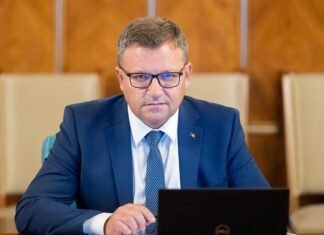On Tuesday, the European People’s Party (EPP), a center-right political group, re-elected Manfred Weber for a second three-year term as its president. This decision reflects the strong support Weber has within the party and highlights the EPP’s continued dominance in European politics.
The EPP is recognized as the largest political force in Brussels, playing a pivotal role in shaping European Union policies. The party boasts a significant number of European commissioners—14 in total. These commissioners are responsible for various portfolios, influencing key aspects of EU governance, from trade and environmental policies to security and technological advancements. The EPP’s influence extends beyond the commission, as it also holds a prominent position in the European Council, with 12 leaders representing the party. This level of representation allows the EPP to steer discussions and decisions at a high level within the EU framework.
Moreover, the EPP is the largest political group in the European Parliament, comprising 188 Members of the European Parliament (MEPs). This numerical superiority not only grants the party substantial voting power but also positions it as a critical player in legislative processes. The EPP’s leadership is tasked with maintaining cohesion among its members, fostering collaboration with other political groups, and advancing the party’s agenda on a European scale.
Manfred Weber, as the re-elected president, faces significant challenges ahead. The evolving political landscape in Europe, marked by rising populism, climate change concerns, and economic recovery post-pandemic, necessitates strategic leadership. Weber’s continued leadership will be essential for the EPP to navigate these complexities while staying true to its core values of promoting a unified Europe characterized by stability, prosperity, and shared democratic principles.
In recent years, the EPP has worked to address public concerns about issues like migration, job creation, and environmental sustainability. By prioritizing these themes, the party aims to connect with citizens and respond to their needs more effectively. Weber’s presidency is expected to emphasize a balanced approach, advocating for effective policies that reflect both economic growth and social responsibility.
The upcoming years will also test the party’s ability to unite its diverse membership base, which includes various center-right factions from different EU member states. Maintaining this unity is crucial for the EPP to uphold its leadership position in European politics, as it faces competition from other political entities, including left-wing parties and newer, more dynamic groups emerging within the EU.
Weber’s re-election signifies the EPP’s commitment to continuity in its leadership and policy direction. His approach will involve engaging with stakeholders across the political spectrum while still advocating for the party’s principles. The success of this strategy will largely depend on how effectively Weber and the EPP can articulate their vision for Europe and mobilize support for their initiatives.
In conclusion, the re-election of Manfred Weber as president of the EPP underscores the party’s strength in European politics. As the largest political group in the EU, the EPP is positioned to influence significant political discourse and decision-making in the coming years. Through effective leadership, the party aims to address pressing issues facing Europe today while fostering a cohesive and unified approach among its diverse members.






